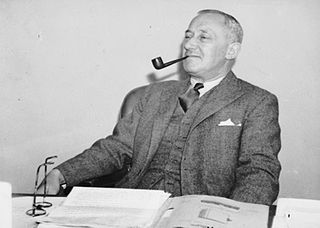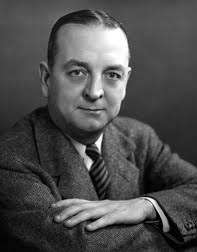A Quote by Benito Mussolini
The corporate State considers that private enterprise in the sphere of production is the most effective and useful instrument in the interest of the nation. In view of the fact that private organisation of production is a function of national concern, the organiser of the enterprise is responsible to the State for the direction given to production.
Related Quotes
The quickest and surest way to production, prosperity, and economic growth is through private enterprise. The best way for governments to encourage private enterprise is to establish justice, to enforce contracts, to insure domestic peace and tranquility, to protect private property, and to secure the blessings of liberty including economic liberty - which means to stop putting obstacles in the way of private enterprise.
Government-to-government foreign aid promotes statism, centralized planning, socialism, dependence, pauperization, inefficiency, and waste. It prolongs the poverty it is designed to cure. Voluntary private investment in private enterprise, on the other hand, promotes capitalism, production, independence, and self-reliance.
In point of fact there are a certain number of values and of forces which are of decisive importance in our world civilization: the primacy of production, the continual growth of the power of the State and the formation of the National State, the autonomous development of technics, etc. These, among others - far more than the ownership of the means of production or any totalitarian doctrine - are the constitutive elements of the modern world. So long as these elements continue to be taken for granted, the world is standing still.
By means of the banking system the distribution of capital as a special business, a social function, is taken out of the hands of the private capitalists and usurers. But at the same time, banking and credit become the most effective means of driving captialist production beyond its own limits and one of the most effective vehicles of crises and swindle.
The state tends to expand in proportion to its means of existence and to live beyond its means, and these are, in the last analysis, nothing but the substance of the people. Woe to the people that cannot limit the sphere of action of the state! Freedom, private enterprise, wealth, happiness, independence, personal dignity, all vanish.
Private property in the instruments of production is an institutional device both for dispersing power and for securing effective organization of production. The only simple property system is that of a slave society with a single slave owner - which, significantly, is the limiting case of despotism and of monopoly. Departure from such a system is a fair measure of human progress.
The first act by virtue of which the State really constitutes itself the representative of the whole of societythe taking possession of the means of production in the name of societythis is, at the same time, its last independent act as a State. State interference in social relations becomes, in one domain after another, superfluous, and then dies out of itself; the government of persons is replaced by the administration of things, and by the conduct of processes of production. The State is not abolished. It dies out.





























